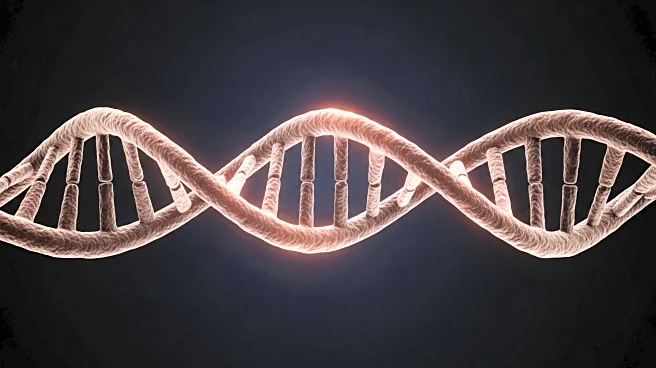What's Happening?
Recent research conducted by the Wellcome Sanger Institute, in collaboration with the TwinsUK study at King’s College London, has uncovered that as men age, harmful genetic mutations in sperm not only accumulate but are also favored during sperm production. This phenomenon, known as 'selfish selection,' allows certain mutations to thrive within the testes, increasing risks to offspring over time. The study utilized ultra-accurate DNA sequencing to analyze sperm from 81 healthy men aged between 24 and 75 years. Findings indicate that sperm from older men are significantly more likely to carry disease-causing mutations, including those linked to neurodevelopmental disorders and cancer. The research highlights how paternal age influences genetic inheritance and the mechanisms driving mutation spread across generations.
Why It's Important?
The implications of this study are significant for understanding genetic risks associated with paternal age. As the proportion of sperm carrying harmful mutations increases with age, the genetic health risks for offspring also rise. This research provides crucial insights into how natural selection within sperm can be directly observed in the DNA of children, influencing their chances of inheriting certain genetic disorders. The findings could lead to improved reproductive risk assessments and open new opportunities to study how environmental and lifestyle factors impact genetic risks in future generations. This is particularly relevant as societal trends show men are increasingly fathering children at older ages.
What's Next?
Further research is needed to understand how the growing burden of sperm mutations translates into health outcomes for children. Scientists aim to explore how lifestyle and environmental factors might influence genetic risks passed on to future generations. The study also opens avenues for investigating how variations in DNA arise and are shaped by selection in sperm, potentially leading to new strategies for mitigating genetic risks associated with paternal age.
Beyond the Headlines
The study challenges the assumption that the germline is well protected due to its low mutation rate. It reveals that the male germline is a dynamic environment where natural selection can favor harmful mutations, sometimes with consequences for the next generation. This research underscores the importance of considering paternal age in genetic counseling and public health strategies.









